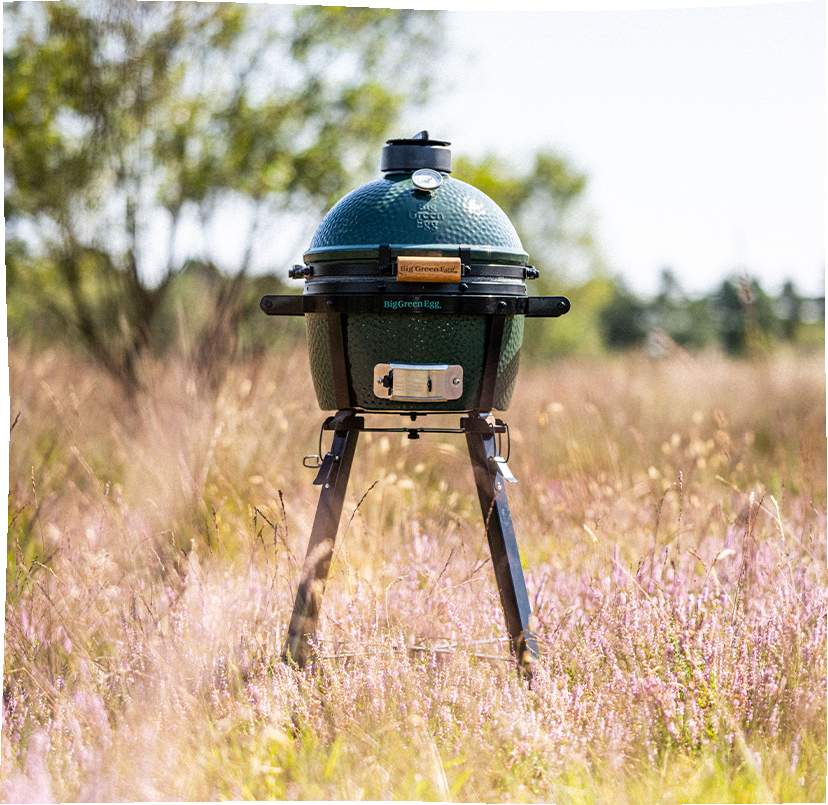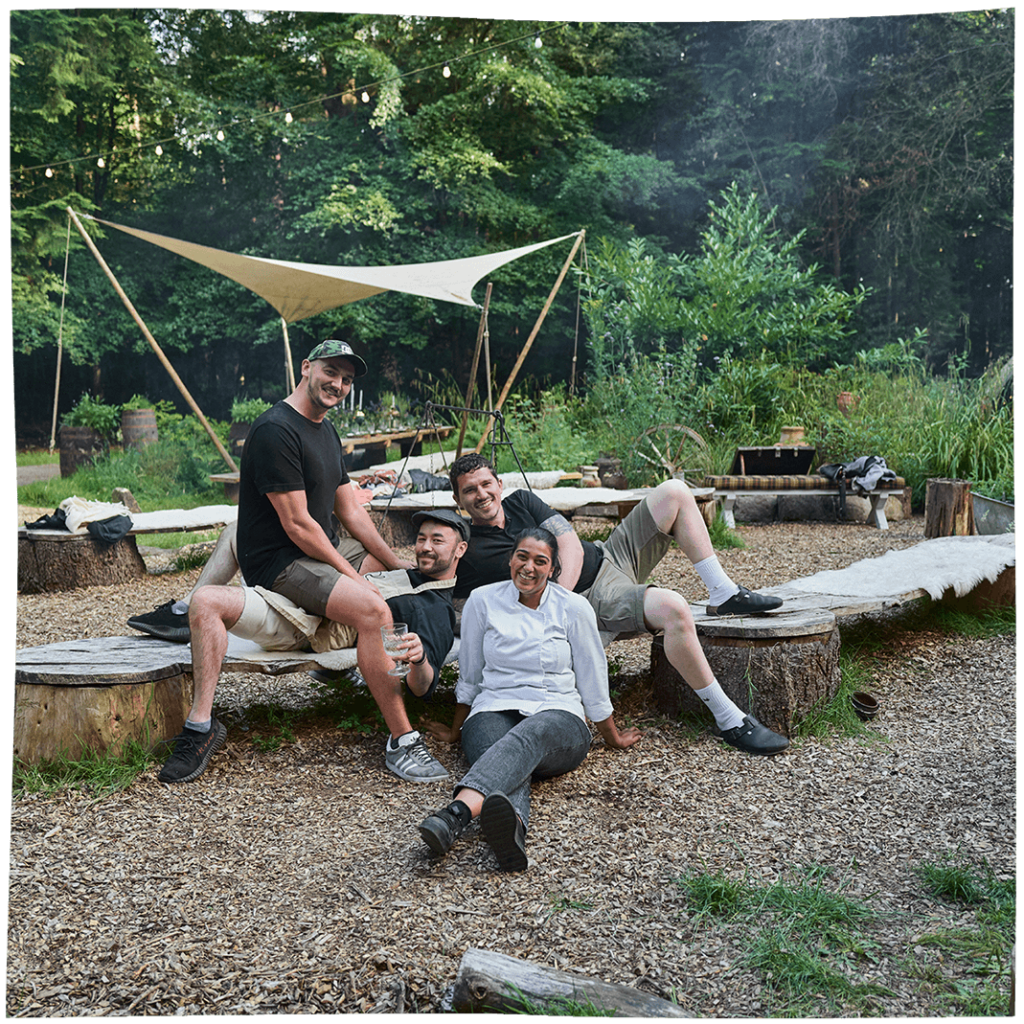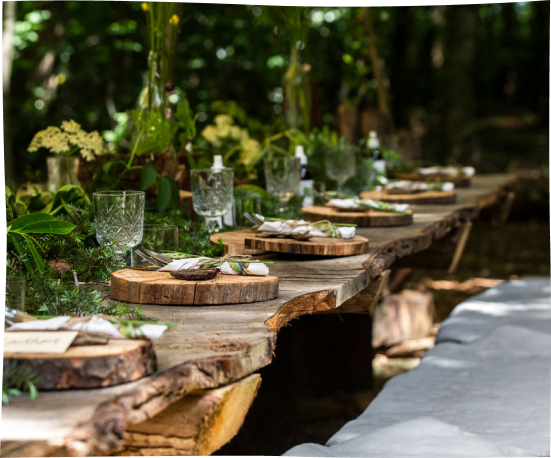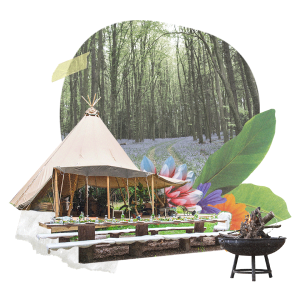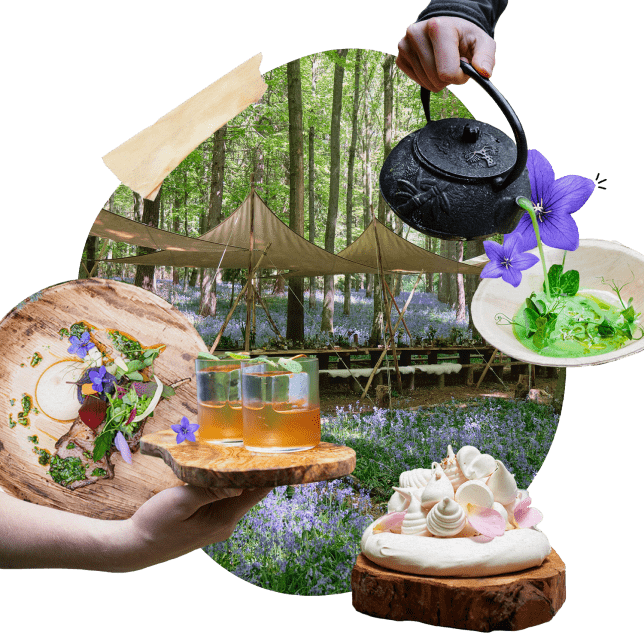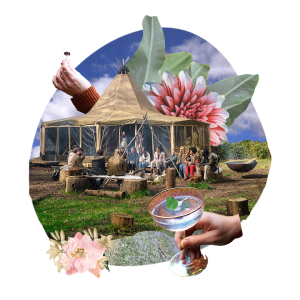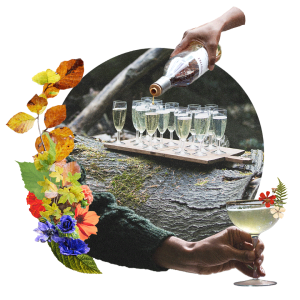At Nomadic, we work alongside our resident tree surgeon to create our tablescapes, bars and table mats. Most of the landscape you see around you has been constructed from wood we have upcycled from the forest that has been given new life. We have been fascinated by the topic of trees for as long as we can remember. They sustain life and will outlive our species long after we have disappeared. They also provide fascinating insights into the world around us.
Dendrology is the study of trees and other woody plants. It is a fascinating field that involves the identification, classification, and study of trees. The study of dendrology is important for several reasons, including the conservation and management of forest ecosystems, the study of climate change, and the identification of trees for timber and other commercial purposes.
1. Identification of Trees
One of the primary goals of dendrology is the identification of trees. Dendrologists use a variety of tools and techniques to identify trees, including leaf morphology, bark texture, and the shape and size of the tree. They also study the tree’s growth patterns, which can reveal important information about its age and health.
For example, the annual rings on a tree’s trunk can be used to determine its age. Each year, a tree produces a new layer of wood, which forms a ring around the trunk. By counting the number of rings, dendrologists can determine the age of the tree. They can also use the rings to study the tree’s growth patterns and to identify periods of drought or other environmental stress.
2. Conservation and Management of Forest Ecosystems
Dendrology plays an important role in the conservation and management of forest ecosystems. By studying the growth patterns and health of trees, dendrologists can identify areas where forests are at risk of disease, insect infestation, or other environmental stressors. They can also determine the best ways to manage forests to ensure their long-term health and sustainability.
For example, dendrologists may recommend thinning out overcrowded forests to improve the health of individual trees and the overall health of the forest ecosystem. They may also recommend planting new trees to replace those that have been lost to disease, fire, or other natural disasters.
3. Study of Climate Change
Dendrology is also an important tool for studying climate change. By studying the growth patterns and annual rings of trees, dendrologists can identify changes in temperature and precipitation patterns over time. They can also identify periods of drought or other environmental stressors that may be related to climate change.
For example, dendrologists have used tree-ring data to study the Little Ice Age, a period of cooling that occurred between the 16th and 19th centuries. They have also used tree-ring data to study the warming trend that occurred in the 20th and 21st centuries.
4. Identification of Trees for Timber and Other Commercial Purposes
Finally, dendrology is important for identifying trees for timber and other commercial purposes. By studying the growth patterns and characteristics of different tree species, dendrologists can determine which species are best suited for different commercial applications.
For example, dendrologists may recommend using Douglas fir for structural lumber while recommending spruce or pine for paper pulp. They may also recommend using certain tree species for landscaping or other ornamental purposes.
Dendrology is a fascinating field that has important applications in forestry, conservation, climate science, and other areas. By studying trees and other woody plants, dendrologists are helping to conserve and manage our planet’s forest ecosystems, understand the impacts of climate change, and identify the best trees for commercial use.
